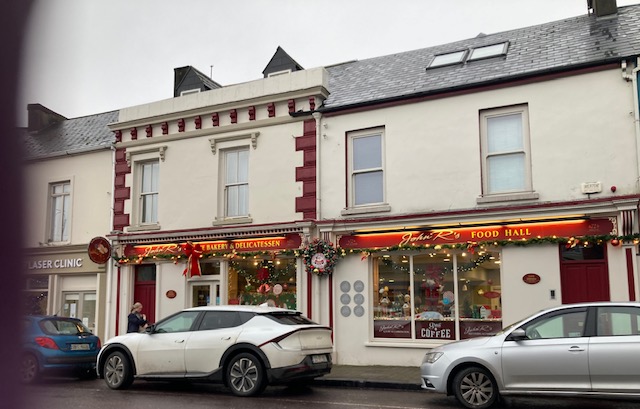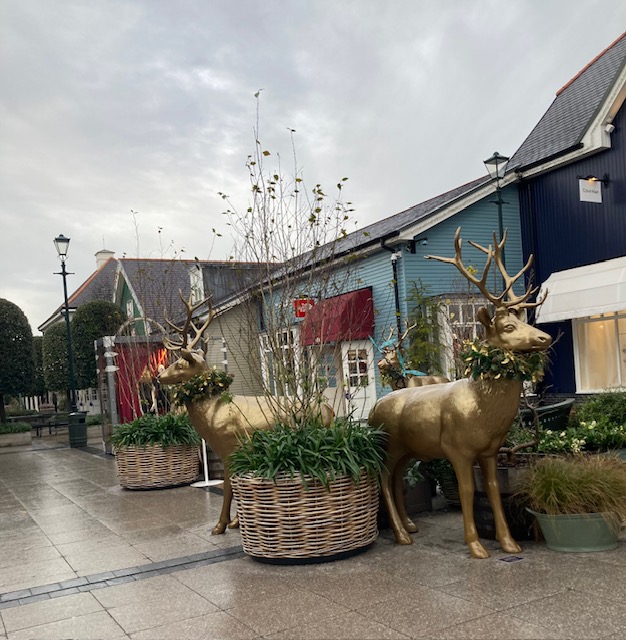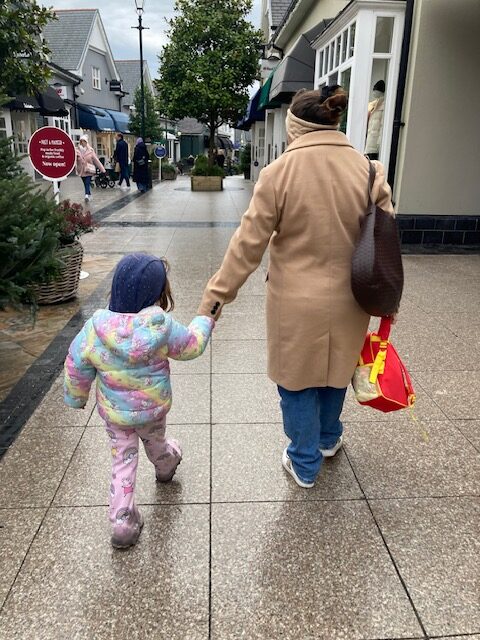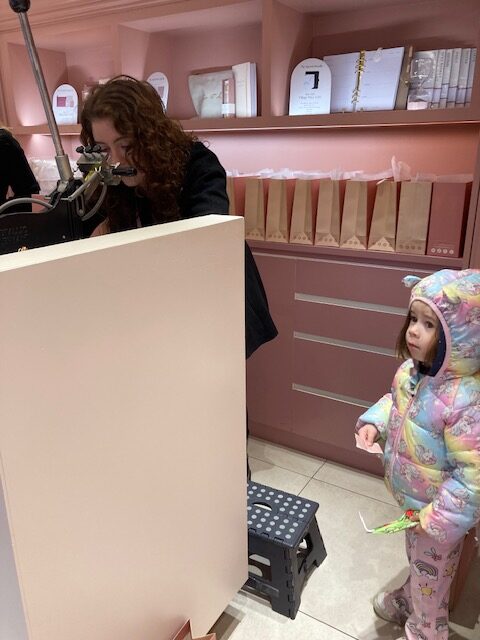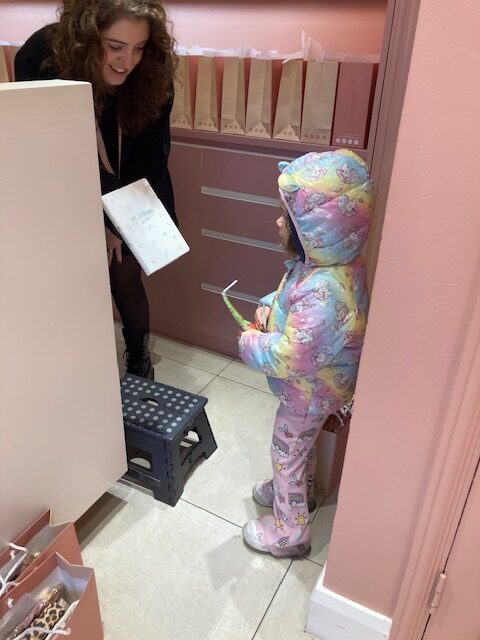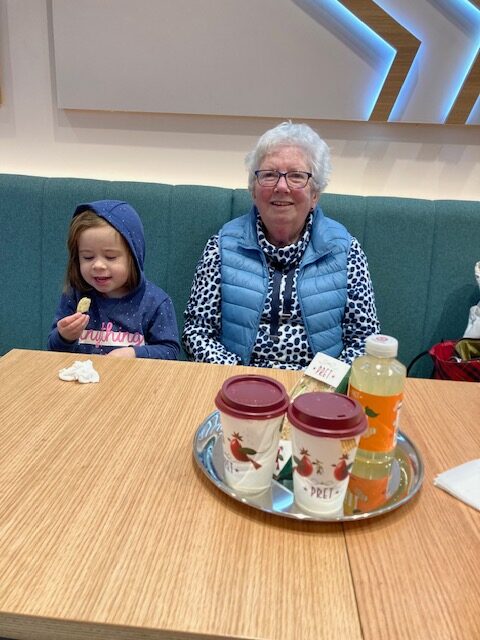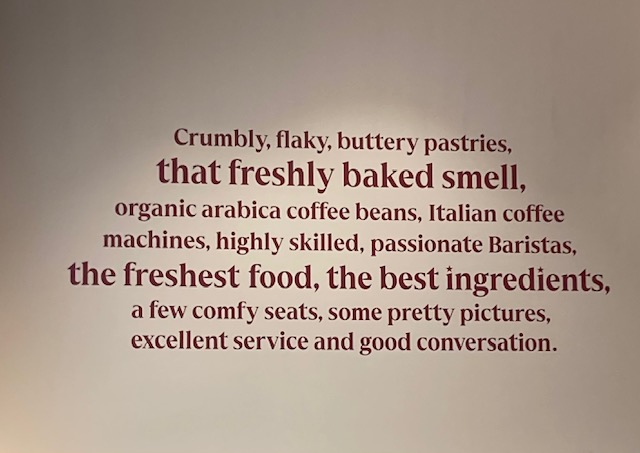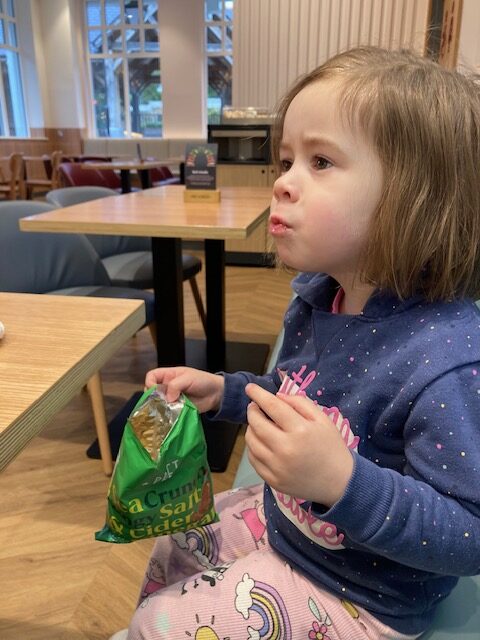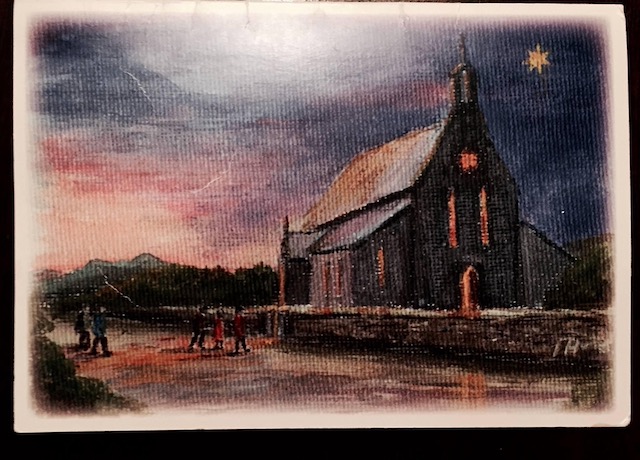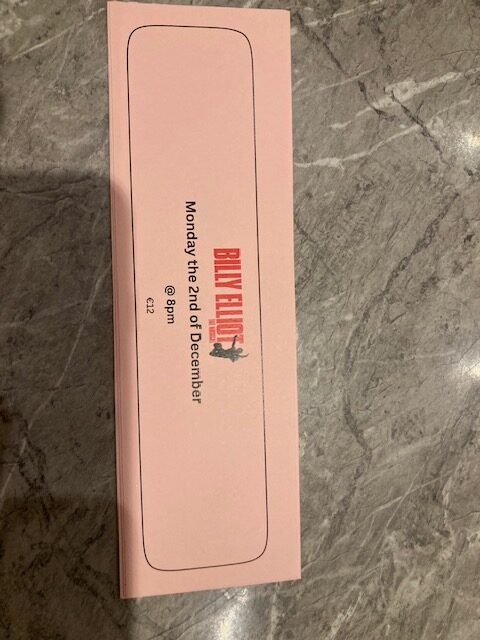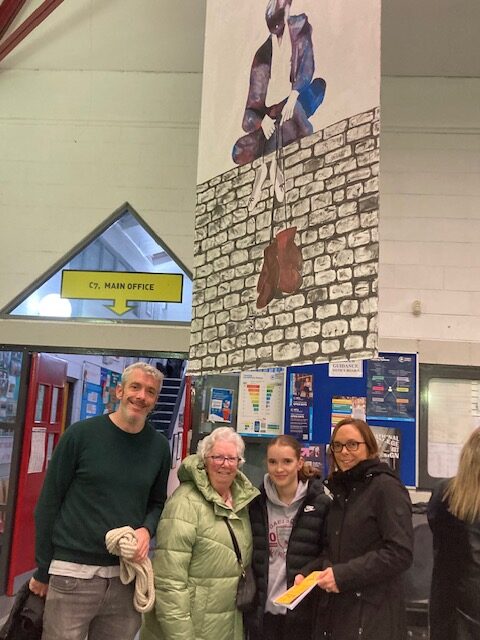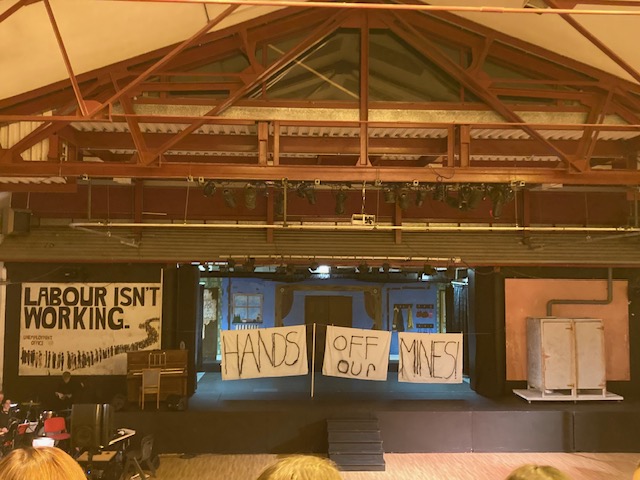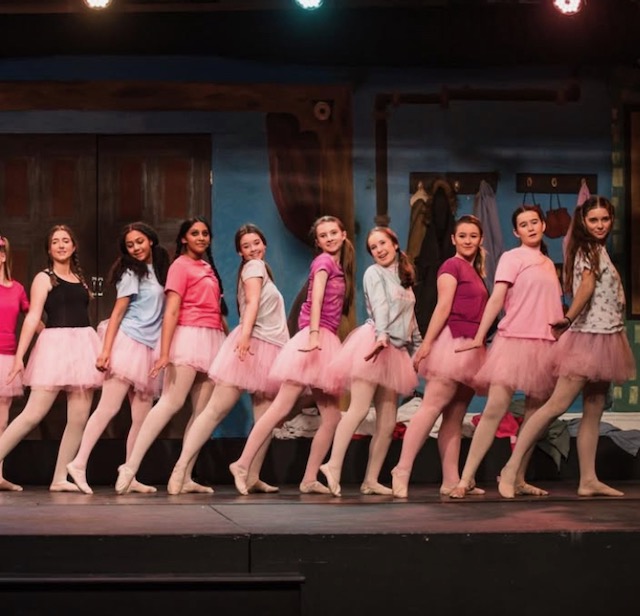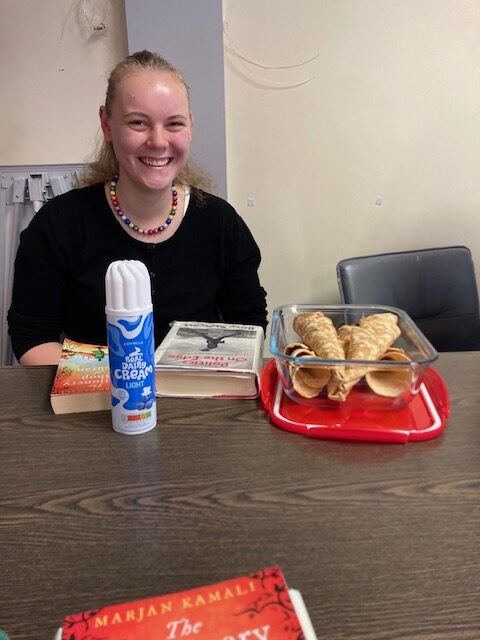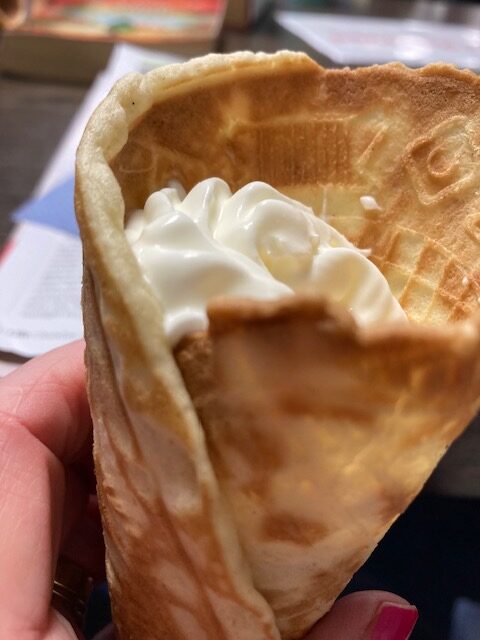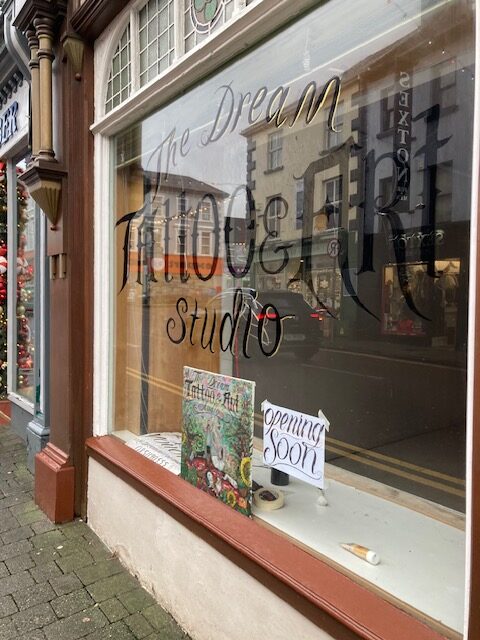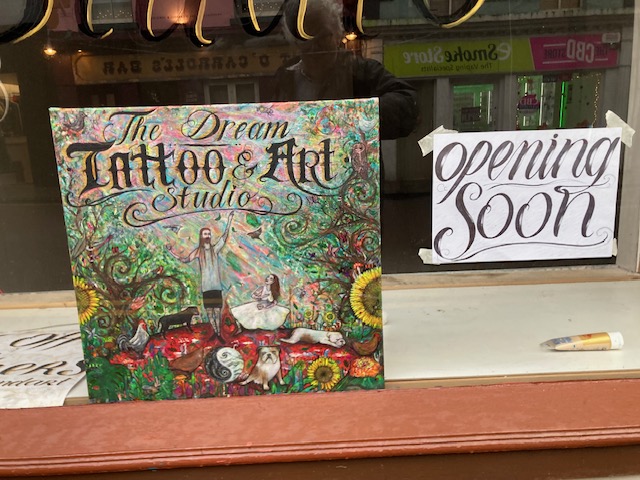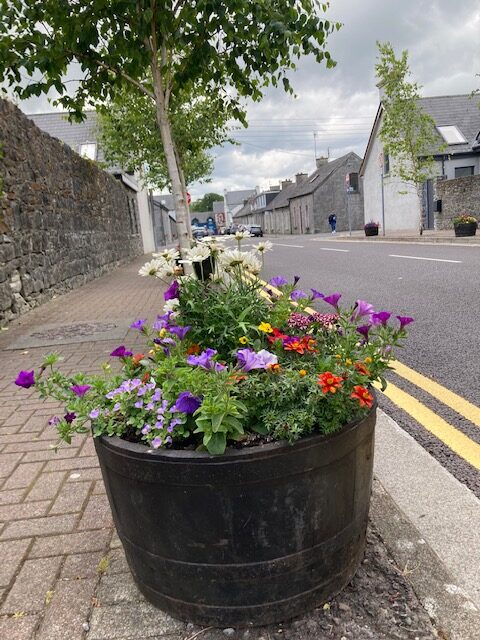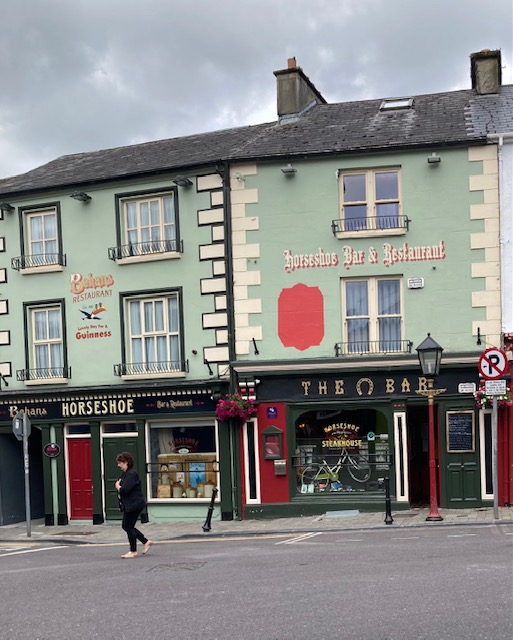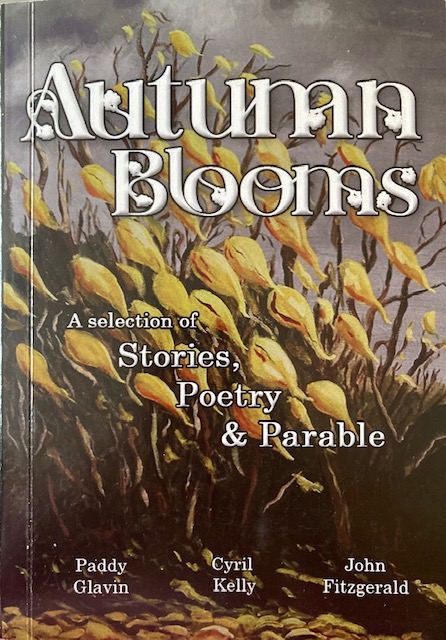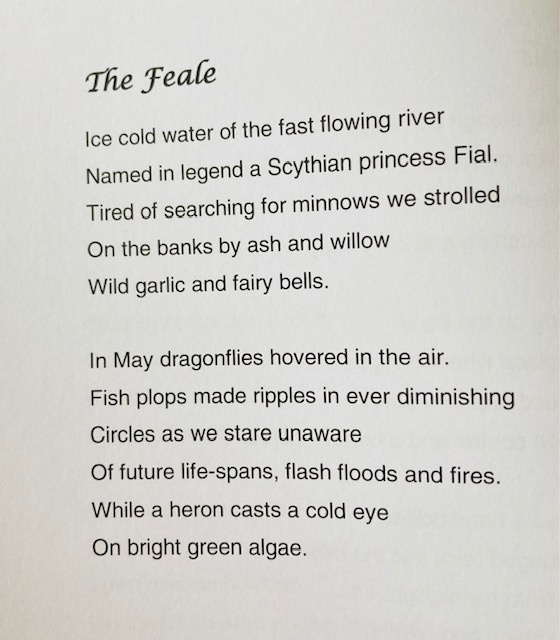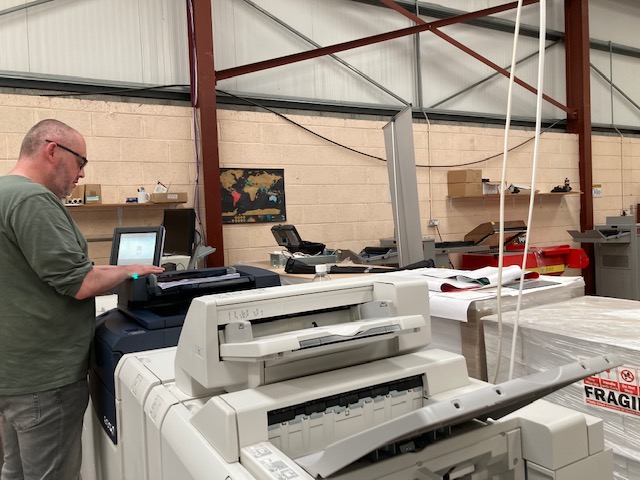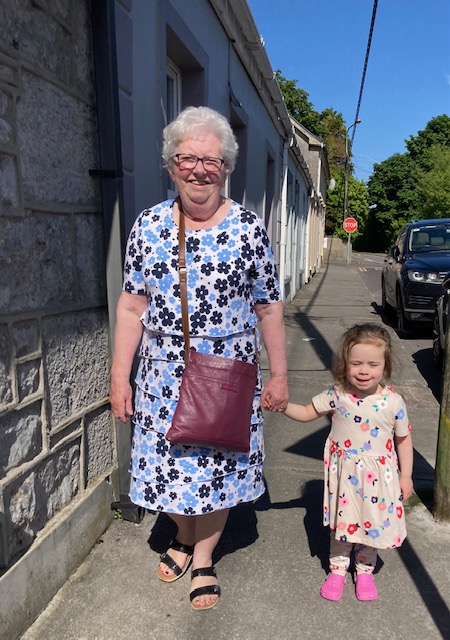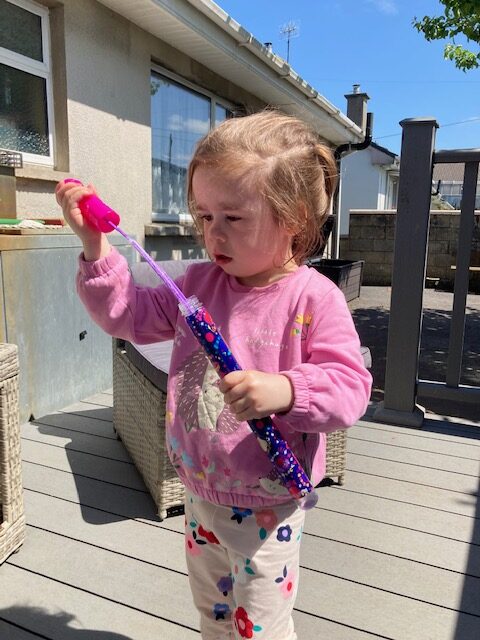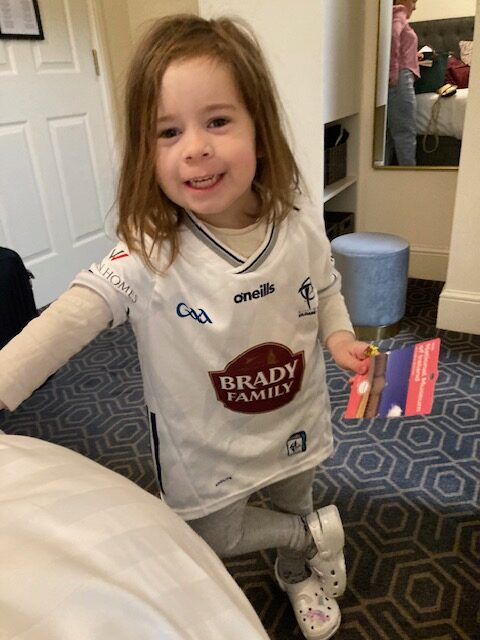
This is Aoife McKenna, aged 3 and 3/4. She is wearing her Kildare jersey because the photo was taken on Sunday, April 27 2025. Her team unfortunately lost to Meath and are now back in the Tailteann Cup. When they win that and move up again, Aoife will be old enough to support them.
Aoife is the reason I was galavanting for the last while. My Cork visitors are also the reason I have been absent from here for the past 2 weeks. I’m back now to tell you about my travels.
<<<<<<<<
Another One Gone
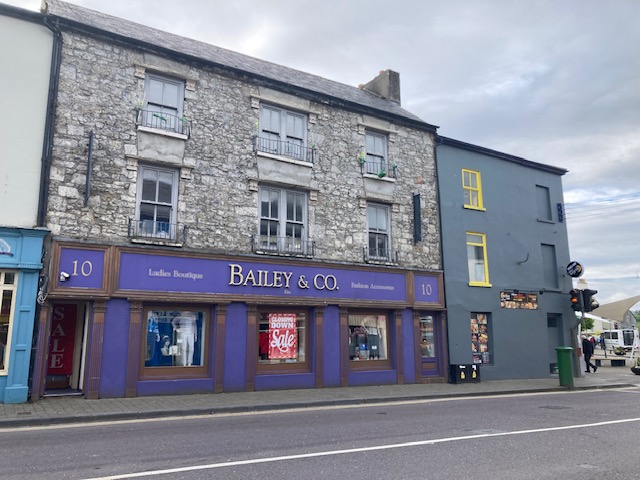
Bailey and Co is closing soon after a successful run at the fashion trade in Listowel and North Kerry. Best of luck to Norella and Danny. Hopefully we’ll see another nice shop here very soon.
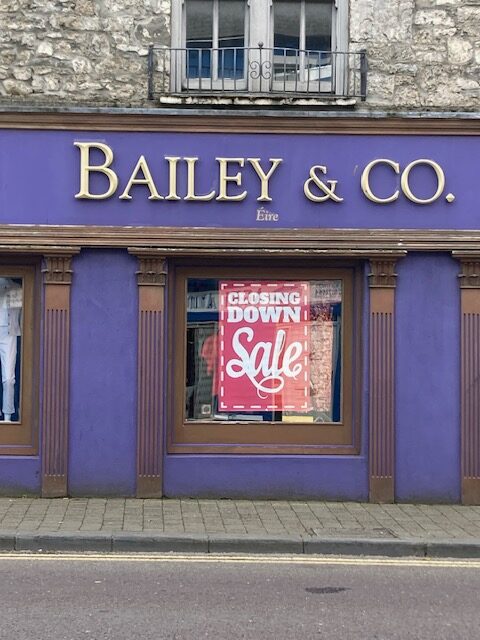
<<<<<<<
A Listowel Connection Lost
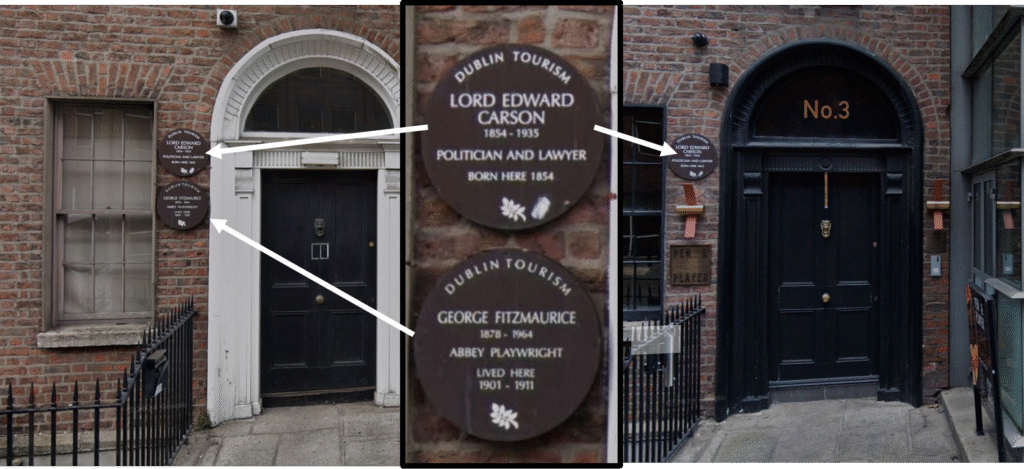
Warren Buckley sent us this photo and the story
In 1895 Carson’s arguments saw the removal of Oscar Wilde from the public eye in London. In 2025 Carson’s plaque saw the removal of another writer, George Fitzmaurice, from the public eye in Dublin.
No 3 Harcourt Street, where Listowel writer George Fitzmaurice once lived, previously housed a restaurant and bar. “The Pie Dish” and “The Magic Glasses” were named after Fitzmaurice’s plays . Now a cocktail bar called the “Pen and Player” the owners appear to favour Carson over Fitzmaurice and have removed Fitmaurice’s plaque. A little piece of Listowel history lost.
————
George Fitzmaurice is an almost forgotten figure in the realms of Irish literature. Kerry Writers’ Museum has a room dedicated to him. One of his plays, The Country Dressmaker, was recently staged in St. John’s. Outside of Listowel he is not widely recognised, so here is a small biography from KWM website.
Fitzmaurice was known for his sharp wit, unique dialogue, and rich characters that captured the essence of rural Ireland in the early 20th century.
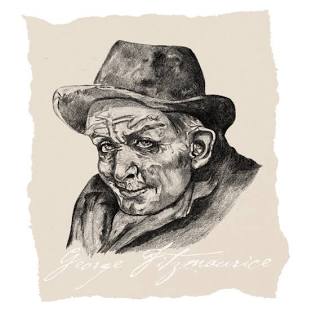
Born in 1877, just outside Listowel, Fitzmaurice developed an early fascination with the Irish language and literature. His plays and novels were celebrated for their authentic portrayal of the Irish people and their struggles, often with a touch of humor and satire.
Fitzmaurice’s most famous play, “The Country Dressmaker,” premiered in 1907 at the Abbey Theatre in Dublin, where it received critical acclaim and launched Fitzmaurice’s career. He went on to produce many more successful works, including “The Magic Glasses,” and “The Moonlighter”.
Despite his success, Fitzmaurice remained humble and dedicated to his craft, writing until his death in 1963. He leaves behind a legacy as one of Ireland’s greatest writers, capturing the essence of rural Irish life and the struggles of its people.
You may view a lecture on Fitzmaurice by Dr. Fiona Brennan on the KWM YouTube channel
<<<<<<<<<
Listowel Literary Festival
In the time slot in the calendar of Irish festivals which was, up to 2024, occupied by Listowel Writers’ Week, we now will have a newly named festival, Listowel Literary Festival.
Photo and text from Radio Kerry website
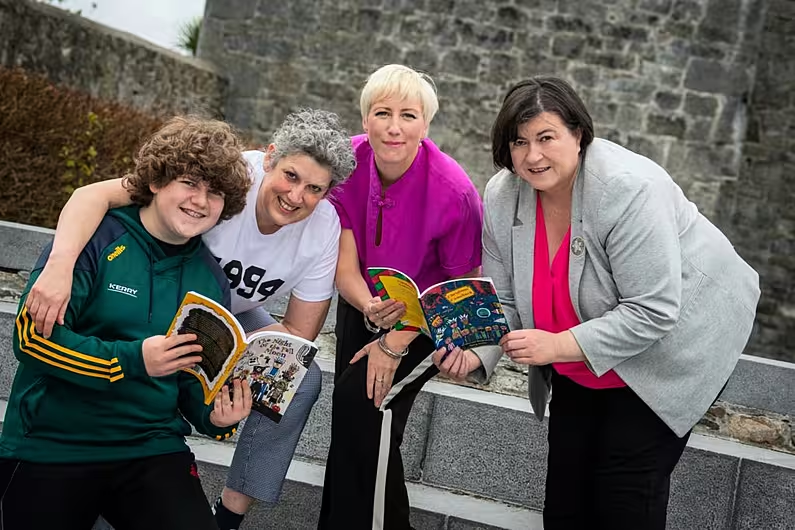
In Dominick Walsh’s photograph at the launch are
“12 year old Listowel writer & illustrator Danny Lawlor , Maire Logue Artistic Director of SJT and Curator of Listowel Literary Festival , Katie O’Brien Executive Director of Listowel Writers’ Week and Cara Trant, Artistic Director of KWM and Producer of Listowel Literary Festival . “
“A Unified Celebration of Creativity and Strength in Unity in Ireland’s Literary Capital of Listowel. In 2025, Listowel proudly reaffirms its place at the heart of Ireland’s literary landscape with the launch of Listowel Literature Festival, a landmark collaboration between Listowel Writers’ Week, Kerry Writers’ Museum, and St. John’s Theatre and Arts Centre. This collective festival offering will take place from May 28th to June 1st, welcoming audiences to a dynamic celebration of storytelling, creativity, and community. Rooted in Listowel’s exceptional literary heritage, this year’s programme embraces an inclusive, vibrant, and boldly imaginative vision. The initiative draws inspiration from the words of Brendan Kennelly: “Begin again to the summoning birds.” That call to renewal echoes throughout the 2025 programme. “
( P.S. I think Literature in the above text is a typo. It is Listowel Literary Festival)
The full programme is on the Writers’ Week website at the below link
<<<<<<<
A Fact
In 1993, Intel launched its Pentium Processor. Intel was then at the cutting edge of digital technology
<<<<<<<<

